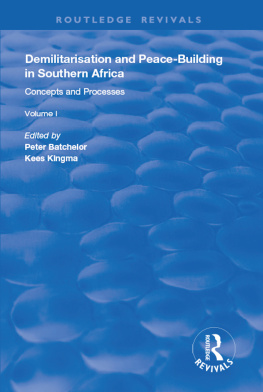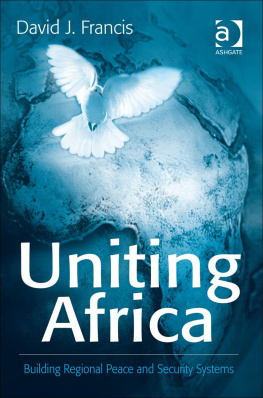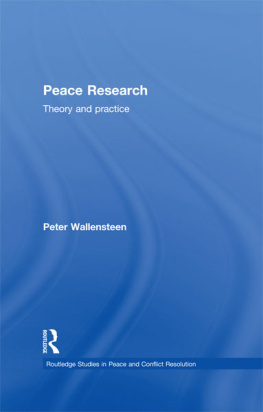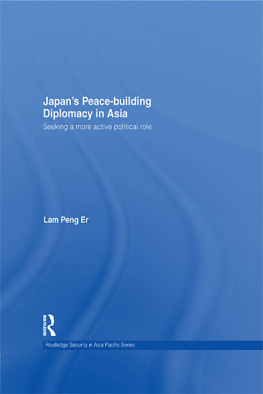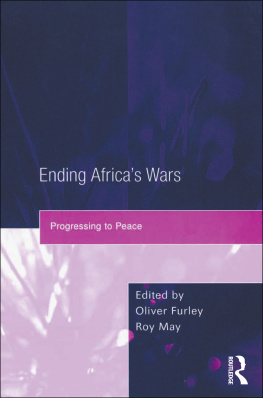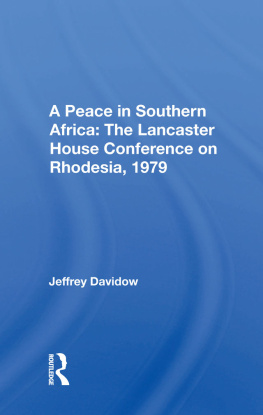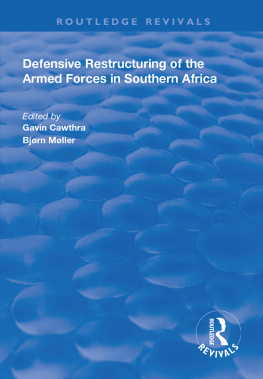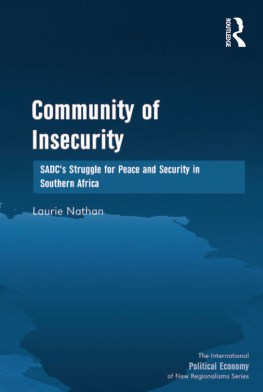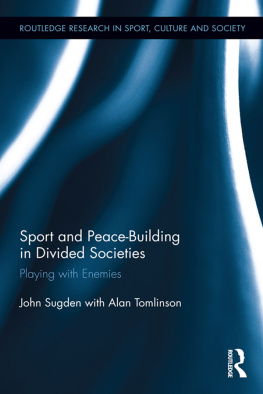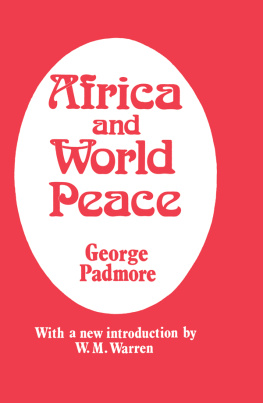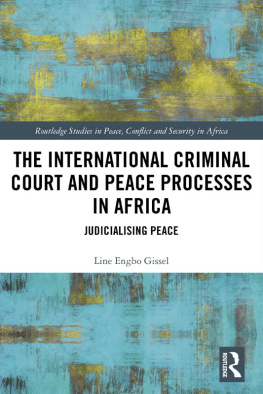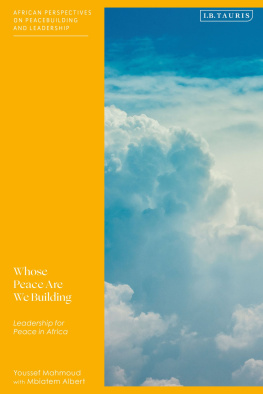DEMILITARISATION AND PEACE-BUILDING IN SOUTHERN AFRICA
The International Political Economy of New Regionalisms Series
The International Political Economy of New Regionalisms Series presents innovative analyses of a range of novel regional relations and institutions. Going beyond established, formal, interstate economic organizations, this essential series provides informed interdisciplinary and international research and debate about myriad heterogeneous intermediate level interactions.
Reflective of its cosmopolitan and creative orientation, this series is developed by an international editorial team of established and emerging scholars in both the South and North. It reinforces ongoing networks of analysts in both academia and think-tanks as well as international agencies concerned with micro-, meso- and macro-level regionalisms.
Editorial Board
Timothy M. Shaw, University of London, UK
Isidro Morales, Universidad de las Americas, Puebla, Mexico
Maria Nzomo, Embassy of Kenya, Zimbabwe
Nicola Phillips, University of Manchester, UK
Johan Saravanamuttu, Science University of Malaysia, Malaysia
Fredrik Sderbaum, Gteborgs Universitet, Sweden
Recent Titles in the Series
Demilitarisation and Peace-Building in Southern Africa:
Volume II National and Regional Experiences
Edited by Peter Batchelor and Kees Kingma
Demilitarisation and Peace-Building in Southern Africa:
Volume III The Role of the Military in State Formation and Nation-Building
Edited by Peter Batchelor, Kees Kingma and Guy Lamb
Persistent Permeability?:
Regionalism, Localism, and Globalization in the Middle East
Edited by Bassel F. Salloukh and Rex Brynen
Reforging the Weakest Link:
Global Political Economy and Post-Soviet Change in Russia, Ukraine and Belarus
Edited by Neil Robinson
Demilitarisation and Peace-Building in Southern Africa
Volume I Concepts and Processes
Edited by
PETER BATCHELOR
Centre for Conflict Resolution (CCR),
University of Cape Town, South Africa
KEES KINGMA
Bonn International Center for Conversion (BICC),
Bonn, Germany
First published 2004 by Ashgate Publishing
Reissued 2018 by Routledge
2 Park Square, Milton Park, Abingdon, Oxon OX14 4RN
711 Third Avenue, New York, NY 10017, USA
Routledge is an imprint of the Taylor & Francis Group, an informa business
Copyright Peter Batchelor and Kees Kingma 2004
Peter Batchelor and Kees Kingma have asserted their right under the Copyright, Designs and Patents Act, 1988, to be identified as the editors of this work.
All rights reserved. No part of this book may be reprinted or reproduced or utilised in any form or by any electronic, mechanical, or other means, now known or hereafter invented, including photocopying and recording, or in any information storage or retrieval system, without permission in writing from the publishers.
Notice:
Product or corporate names may be trademarks or registered trademarks, and are used only for identification and explanation without intent to infringe.
Publishers Note
The publisher has gone to great lengths to ensure the quality of this reprint but points out that some imperfections in the original copies may be apparent.
Disclaimer
The publisher has made every effort to trace copyright holders and welcomes correspondence from those they have been unable to contact.
A Library of Congress record exists under LC control number: 2003024003
ISBN 13: 978-1-138-31637-9 (hbk)
ISBN 13: 978-0-429-45197-3 (ebk)
Contents
Peter Batchelor and Kees Kingma
Andr du Pisani
Laurie Nathan
Gavin Cawthra
Peter Batchelor
Jacklyn Cock
Kees Kingma
Dr Peter Batchelor is Project Director of the Small Arms Survey, Graduate Institute of International Studies, Geneva, Switzerland, and was formerly the Co-ordinator of the Project on Peace and Security at the Centre for Conflict Resolution, University of Cape Town, South Africa.
Professor Gavin Cawthra is Director/Chair of the Centre for Defence and Security Management, Graduate School of Public & Development Management, University of the Witwatersrand, South Africa.
Professor Jacklyn Cock is Head of the Sociology Department at the University of the Witwatersrand, South Africa.
Professor Andr du Pisani is Dean of the Faculty of Economic and Management Sciences at the University of Namibia, Namibia.
Mr Kees Kingma is a Senior Demobilisation and Reintegration Specialist in the Multi-Country Demobilisation and Reintegration Program for the greater Great Lakes region at the World Bank. During this entire demilitarisation and peace-building research project, Kees was the Project Leader for Demobilisation and Peace-Building at the Bonn International Center for Conversion, Germany (BICC).
Mr Laurie Nathan is the Executive Director of the Centre for Conflict Resolution, University of Cape Town, South Africa.
This volume part of a series of three is one of the products of a collaborative regional research project. It represents the collective efforts and experiences of a group of researchers, policy makers and activists from Africa and elsewhere, who over a period of nearly four years, attempted to understand and explain the processes of demilitarisation and peace-building that have occurred, and are currently occurring, in southern Africa.
When the project started in 1997, southern Africa was beginning to emerge from decades of violent conflict and racial oppression. The general sense at that time was one of optimism about the prospects for peace and human development in the region. Demilitarisation, in terms of cuts in military budgets and the downsizing of armed forces, was taking place in most countries, and peace-building processes at local, national and regional levels seemed to be gaining momentum. However, by 2001, towards the end of this research project, this optimism had begun to fade somewhat. New conflicts had emerged in some countries, while old conflicts had re-emerged in others. Nevertheless, in spite of these developments, the research findings provide compelling evidence of the fact that some significant peace-building processes have firmly taken root in southern Africa.
Between the time of the completion of the research and the publication of these three volumes, certain significant events have occurred in southern Africa, such as the escalating political crisis in Zimbabwe, the death of Jonas Savimbi in early 2002 and the subsequent end of Angolas long-running civil war, and South Africas increasing military involvement in Burundi and the Democratic Republic of Congo (DRC). These events, which affect the content of some of the research findings in the three volumes, also provide further evidence of the resilience and relevance of regional peace-building processes.
Despite these recent events in southern Africa, we believe that the research findings and analysis presented in these three volumes, will stand the test of time and will make a significant contribution to enhancing our understanding of the concepts of demilitarisation and peace-building, and the historical and current dynamics of these processes in southern Africa.
Any research effort, no matter how well planned and comprehensive, is bound to treat certain issues with less attention than they deserve. Certainly the gender aspects of peace-building in southern Africa are not comprehensively addressed in the three volumes, and more research is needed on this topic. Other relevant issues, such as the proliferation of small arms, the reintegration of child soldiers, and ongoing security sector reform, were originally included in the design of the project, but for various reasons do not receive sufficient attention in these publications. A number of publications on peace and security issues have appeared in recent years. Examples include Mark Duffields

